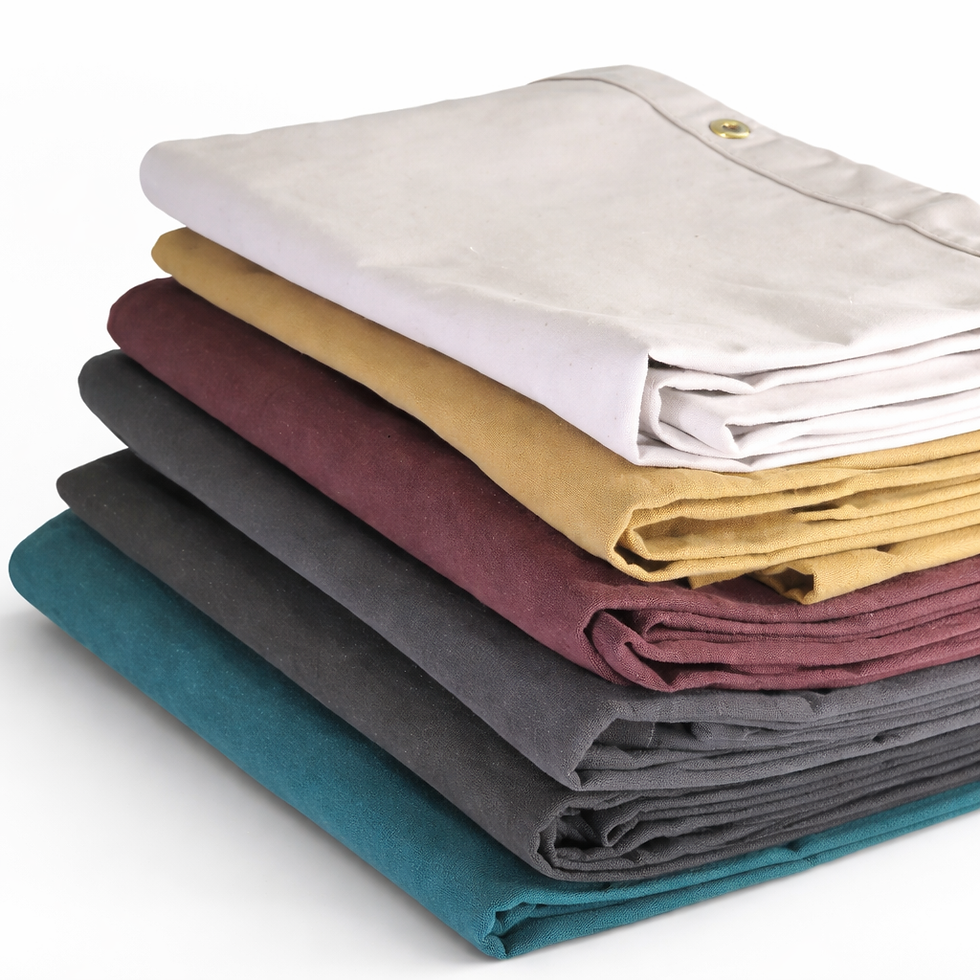Are All Tarpaulins Cover Waterproof?
- Bradley Tomlinson

- Jul 6, 2023
- 2 min read
Tarpaulins, also known as tarps, are versatile and durable protective coverings used for various purposes. Tarpaulin is large, flexible sheets of material designed to shield objects, surfaces, or areas from adverse weather conditions or other external factors. These are commonly used in construction, agriculture, camping, transportation, and many other industries. Tarpaulins are made from a range of materials, each with its own characteristics and purposes. Polyethylene tarps are constructed from woven plastic fibers, making them lightweight and cost-effective. These sheets offer moderate water resistance and are commonly used for temporary covers or general-purpose applications.
Tarpaulins come with various features to enhance their functionality. These covers often have reinforced edges, grommets, or eyelets for easy attachment and secure fastening. Some tarps have UV-resistant coatings to prolong their lifespan under sunlight exposure. Tarps may come in different sizes, colors, and thicknesses, allowing users to choose the most suitable option based on their specific needs
Heavy-Duty Tarps: Heavy-duty tarps are designed to withstand demanding conditions and provide robust protection. These tarps are typically made from durable materials such as polyethylene or PVC. Heavy-duty tarps are often waterproof, offering reliable resistance against rain, snow, and moisture. These are commonly used in construction sites, industrial applications, or for covering large equipment and machinery.
Canvas Tarps: Canvas Tarpaulin is known for their strength and durability but are not inherently waterproof. The natural fibers of canvas allow some water to penetrate through the material, especially during prolonged exposure to moisture. Canvas tarps can be treated with water-repellent coatings to enhance their water resistance. These are often used for long-term covers, outdoor shelters, or as protective barriers where breathability is desired.
Economy Tarps: Economy tarps are budget-friendly options that provide basic protection for various purposes. These tarps are usually made from lightweight polyethylene material, offering moderate water resistance. While they may not be fully waterproof, they can still provide sufficient coverage for short-term or light-duty applications, such as covering furniture during a move or protecting items in a backyard.
Vinyl Tarps: Vinyl tarps, typically made from PVC, are known for their excellent waterproofing capabilities. They are highly resistant to water and provide reliable protection against rain and moisture. Vinyl tarps are commonly used in marine applications, as truck or trailer covers, or in situations where complete waterproofing is essential. This offers durability and can withstand harsh weather conditions.
Clear Tarps: Clear tarps are typically made from polyethylene or PVC materials and are transparent, allowing for visibility while providing protection. Clear covers are not usually completely waterproof, as they may have seams or areas where water can seep through. However, they offer some level of water resistance and are suitable for applications where visibility is important, such as enclosing a patio or creating a temporary greenhouse.
Vinyl Tarps (PVC): Vinyl tarps, particularly those made from PVC (polyvinyl chloride), are known for their exceptional durability and excellent waterproofing capabilities. These are resistant to UV rays, oil, chemicals, and abrasions, making them suitable for demanding applications. PVC tarps are commonly used for truck and trailer covers, equipment protection, or as temporary roofs.









Comments